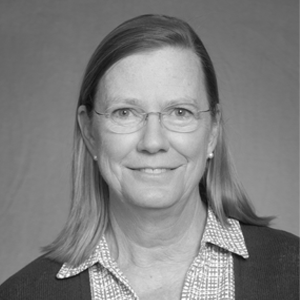You may think you’re still qualified—but SQF doesn’t care what you think.
The SQF Code isn’t what it was a few years ago. The latest updates in SQF Edition 9 introduced meaningful changes to what it means to be a qualified practitioner. Informal experience? Legacy training? Neither is guaranteed to meet the current bar. And if you’re preparing for your next audit assuming you’re in the clear, you may already be behind.
SQF doesn’t recognize past assumptions—it recognizes present proof. If you were qualified last year, that doesn’t mean you’re qualified this year. And if your documentation can’t show it, you may not be allowed to lead. Audit readiness doesn’t live in experience—it lives in the ability to prove alignment with the Code’s current expectations.
What’s Changed in the SQF Code?
SQF Edition 9 raised the floor—and most facilities haven’t caught up. One of the most significant shifts: formal training is no longer optional. The Code now explicitly requires verifiable proof that your SQF practitioner has received training aligned with the current standard. Not similar to it. Not “good enough.” It must match Edition 9’s expectations.
Auditors aren’t relying on conversations anymore. They’re looking for documentation. They’re asking:
- Where did this person complete their SQF training?
- Was it Edition 9-specific?
- Can they show a certificate or curriculum?
These aren’t soft questions. They’re gating questions. If your answers don’t hold up, everything else—your documentation, your processes, your recordkeeping—falls under suspicion.
Experience still matters—but only if it’s backed by up-to-date credentials. And credentials that pre-date Edition 9 often don’t count anymore. That’s why many experienced QA leads have had to return to training—especially those who were “grandfathered in” and now face new audit expectations.
The shift from Edition 8 to Edition 9 wasn’t cosmetic. It realigned the Code with the evolving expectations of GFSI benchmarking, food defense, and traceability. If your training doesn’t reflect those shifts, you’re not operating at standard—you’re operating under legacy assumptions. And those assumptions won’t hold up when challenged.
Why Past Experience No Longer Counts (on Its Own)
SQF used to allow facilities to lean on tribal knowledge—tenured employees who “knew the system” well enough to serve as practitioners. But as food safety threats and audit expectations became more complex, SQF eliminated the gray area. “Knowing the system” isn’t the same as proving competence in risk-based decision-making, preventive controls, root cause analysis, and verification protocols—all of which are now critical responsibilities of the role.
An auditor may respect your 15 years in QA. But without documented, Edition 9–aligned training, they won’t consider you qualified under the Code.
This isn’t a theoretical risk. This is what’s happening on the ground:
- Audit scores are being downgraded due to lack of training evidence
- Certificates issued before Edition 9 are being questioned—even rejected
- Facilities are failing Corrective Action timelines because their practitioners didn’t understand the Code’s updated documentation and reanalysis standards
We’ve seen it repeatedly: A practitioner with years of tenure assumes they’re exempt—until the auditor starts asking about Edition 9-specific protocols, traceability expectations, or decision-tree logic in hazard analysis. The confidence evaporates. And the audit falters. We’ve seen this scenario unfold days before an audit, with facilities scrambling to qualify a new lead in time.
How to Quickly Close the Gap and Qualify
Registrar Corp’s SQF Practitioner Training isn’t just GFSI-aligned—it’s built specifically for Edition 9. That means it doesn’t just meet the requirements—it mirrors them. Every learning objective aligns with what auditors now expect to see in your documentation and audit trail.
Whether you’re a newly appointed practitioner or a seasoned QA lead who needs to validate credentials, this is the fastest and most trusted path to:
- Close knowledge and documentation gaps without disrupting operations
- Gain Edition 9–specific certification auditors will recognize and accept
- Prevent missteps in audit prep by aligning your training with the actual code, not past assumptions
This course is used by thousands of food safety teams—including those navigating urgent leadership transitions just weeks before an audit.
And because the course is fully online and self-paced, you can begin immediately, advance on your schedule, and still be ready before your next audit deadline.
This isn’t just a course—it’s what many auditors expect to see in your documentation package. See why thousands of facilities choose this exact program when they need defensible, audit-ready credentials.
Final Word: Don’t Risk Non-Compliance by Assuming You’re Qualified
SQF doesn’t care how many audits you’ve passed. It cares whether you meet the current standard—on paper, in practice, and in real time. If your training doesn’t reflect the latest Code—or worse, can’t be found at all—you’re not going to pass.
Auditors are trained to detect assumption. They ask questions that reveal whether you’ve internalized the expectations of Edition 9—or whether you’re still operating under Edition 8 logic. They know the difference. And they document it.
Don’t wait until the audit to learn your practitioner doesn’t qualify. Here’s how to confirm your qualifications now—before your certification is on the line.
If you’re still unsure whether your credentials will hold up, don’t guess. Benchmark your training against the most in-demand certifications auditors are actively looking for in 2025.








